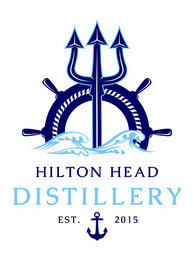Typically, Section 2(e)(2) of the Trademark Act would prohibit the registration (on the Principal Register at least) of a mark that is geographically descriptive (other sections prohibit the registration of geographically misdescriptiveness marks as well - especially for spirits). The purpose of this prohibition is the prevent one person or company from claiming exclusive rights to a geographic place. For example, if this applicant could claim exclusive rights to Hilton Head as it relates to spirits, no other distillery could describe their goods using the term without facing liability, even if they were actually in Hilton Head.
A mark is considered geographically descriptive when:
- the primary significance of the mark is a generally known geographic location;
- the goods or services originate in the place identified in the mark; and
- purchasers would be likely to believe that the goods or services originate in the geographic place identified in the mark. TMEP 1210.01(a).
In this case, Hilton Head is surely a generally known geographic location. If this distillery is actually located in Hilton Head, it would be refused registration on the Principal Register under Section 2(e)(2).
However, this application is for the logo above, not the term HILTON HEAD DISTILLERY. In fact, the applicant disclaimed the words HILTON HEAD DISTILLERY from the mark. By doing so, it is seeking to protect the look and feel of the logo without necessarily claiming exclusive rights to the term. This might be enough to overcome any geographically descriptive bar to registration. We will find out in approximately three months when this application is assigned to an examining attorney at the Trademark Office.

No comments:
Post a Comment